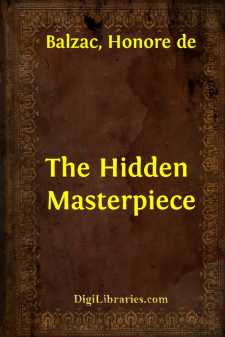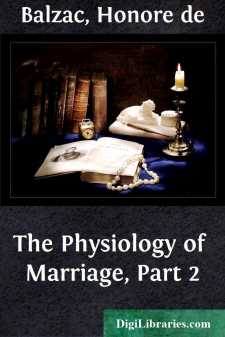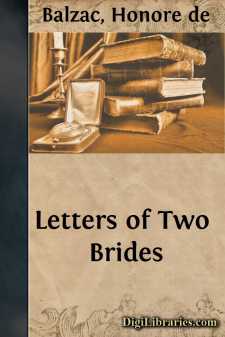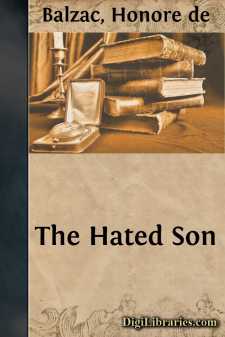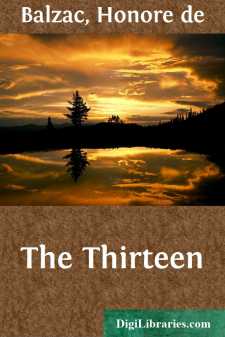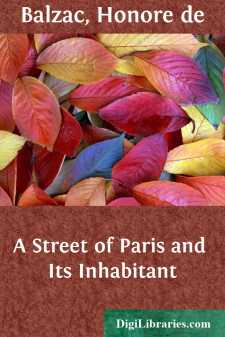Categories
- Antiques & Collectibles 13
- Architecture 36
- Art 48
- Bibles 22
- Biography & Autobiography 813
- Body, Mind & Spirit 142
- Business & Economics 28
- Children's Books 15
- Children's Fiction 12
- Computers 4
- Cooking 94
- Crafts & Hobbies 4
- Drama 346
- Education 46
- Family & Relationships 57
- Fiction 11828
- Games 19
- Gardening 17
- Health & Fitness 34
- History 1377
- House & Home 1
- Humor 147
- Juvenile Fiction 1873
- Juvenile Nonfiction 202
- Language Arts & Disciplines 88
- Law 16
- Literary Collections 686
- Literary Criticism 179
- Mathematics 13
- Medical 41
- Music 40
- Nature 179
- Non-Classifiable 1768
- Performing Arts 7
- Periodicals 1453
- Philosophy 64
- Photography 2
- Poetry 896
- Political Science 203
- Psychology 42
- Reference 154
- Religion 513
- Science 126
- Self-Help 84
- Social Science 81
- Sports & Recreation 34
- Study Aids 3
- Technology & Engineering 59
- Transportation 23
- Travel 463
- True Crime 29
The Hidden Masterpiece
by: Honore de Balzac
Categories:
Description:
Excerpt
CHAPTER I
On a cold morning in December, towards the close of the year 1612, a young man, whose clothing betrayed his poverty, was standing before the door of a house in the Rue des Grands-Augustine, in Paris. After walking to and fro for some time with the hesitation of a lover who fears to approach his mistress, however complying she may be, he ended by crossing the threshold and asking if Maitre Francois Porbus were within. At the affirmative answer of an old woman who was sweeping out one of the lower rooms the young man slowly mounted the stairway, stopping from time to time and hesitating, like a newly fledged courier doubtful as to what sort of reception the king might grant him.
When he reached the upper landing of the spiral ascent, he paused a moment before laying hold of a grotesque knocker which ornamented the door of the atelier where the famous painter of Henry IV.—neglected by Marie de Medicis for Rubens—was probably at work. The young man felt the strong sensation which vibrates in the soul of great artists when, in the flush of youth and of their ardor for art, they approach a man of genius or a masterpiece. In all human sentiments there are, as it were, primeval flowers bred of noble enthusiasms, which droop and fade from year to year, till joy is but a memory and glory a lie. Amid such fleeting emotions nothing so resembles love as the young passion of an artist who tastes the first delicious anguish of his destined fame and woe,—a passion daring yet timid, full of vague confidence and sure discouragement. Is there a man, slender in fortune, rich in his spring-time of genius, whose heart has not beaten loudly as he approached a master of his art? If there be, that man will forever lack some heart-string, some touch, I know not what, of his brush, some fibre in his creations, some sentiment in his poetry. When braggarts, self-satisfied and in love with themselves, step early into the fame which belongs rightly to their future achievements, they are men of genius only in the eyes of fools. If talent is to be measured by youthful shyness, by that indefinable modesty which men born to glory lose in the practice of their art, as a pretty woman loses hers among the artifices of coquetry, then this unknown young man might claim to be possessed of genuine merit. The habit of success lessens doubt; and modesty, perhaps, is doubt.
Worn down with poverty and discouragement, and dismayed at this moment by his own presumption, the young neophyte might not have dared to enter the presence of the master to whom we owe our admirable portrait of Henry IV., if chance had not thrown an unexpected assistance in his way. An old man mounted the spiral stairway. The oddity of his dress, the magnificence of his lace ruffles, the solid assurance of his deliberate step, led the youth to assume that this remarkable personage must be the patron, or at least the intimate friend, of the painter. He drew back into a corner of the landing and made room for the new-comer; looking at him attentively and hoping to find either the frank good-nature of the artistic temperament, or the serviceable disposition of those who promote the arts....


